Jesus, the Ecumenical Christ, the Divine Statesman, and His Triumphal Return

Alziro Zarur
Christmas and New Year, two sister celebrations. In the New Year new times begin and on Christmas Jesus lives again, thus the Hope of the world is reborn. In the Good Will Magazine issue 18 (December 1957) the late Founder of the LGW, Alziro Zarur (1914-1979), tells us a little about our conception of the Christmas of Christ of God:
“Since the creation of the Good Will Campaign on March 4, 1949, our signature tune has been Jesus’ Christmas Song. Many found it strange that the Christmas melody preceded our radio message each day of the year. Today, however, they already understand this: the Legion of Good Will is the Permanent Christmas of Jesus for a better Brazil, for a happier Humanity. Christ is born every day in the hearts of those who know suffering and love, those who will form one flock for one Shepherd”.
In the book O Brasil e o Apocalipse [Brazil and the Apocalypse], volume 3, I emphasize that the most outstanding fact in all History of Humanity, visible or invisible, is the Return of the Ecumenical Jesus, but without fetters. It is enough to recall that He Himself, besides announcing His triumphant return to this world various times in the Gospel and the Apocalypse, dedicates an entire sermon to the End of Times (Matthew 24 and 25), which is also the beginning of a new Era, particularized in the Heavenly Jerusalem as shown in the Book of Final Prophecies (Chapter 21, Verses 2 and 10). What is the crowning of His discourse? It is precisely Parousia – that is, His Glorious Return.
Jesus chose Humanity

Jerônimo Gueiros
The magnificent Spirit that created this planet—after waiting, patiently working for the spiritual evolvement of those who the Heavenly Father delivered to Him for infinite progress*1—returns to collect the fruit of His generous sowing. In fact, within the supreme concept of free will, Christ chose Humanity and its redemption, embodying the real sense of Divine Democracy, as we read in this reflection by the Presbyterian minister and teacher Jerônimo Gueiros*2 (1870-1953), which I found in the historic Good Will Newspaper issue 4 (1969), of which I was honorably the editor:
“Freedom of conscience cannot die! Attribute of man’s moral excellence, psychic fundamental of responsibility, semi-divine halo which God illuminated on His creature’s forehead with the incorruptible luster of His majesty on Earth — freedom was so accepted and esteemed by God Himself that despite the supreme sovereignty of his moral government He did not want to violate it, not even in the eternal interest of this privileged creature that He made in His image and similarity (...)”.
Jesus, however, defeated the spirit of evil, the maximum figuration of error (Matthew 4:1 to 11), that tempted Him in the desert, aiming His high task at the redemption of human failures, raising all to the Heavenly Father.
The premonition of all
The question is that all presage something profoundly important for their existences, either in this or the eternal Life, in this or another dimension. Human cultures, in their different forms, have for a long time foreseen a great event that will mark the history of the planet. For many, it is the glorious return of Humanity’s Divine Head. As we have already seen, Christians expect Christ; our Jewish brothers, in turn, continue announcing the imminent arrival of their Messiah; Buddhists, Lord Maitreya; Islam, Mahdi; and so on. It is something highly mystical and intertwined with the human soul.
The hearts of all people that are one way or another attuned to the messages of the Heavens hear the chords of unspeakable and prophetic melodies that delight their ears and illuminate their existences. It is the prize for loyalty to the One that is “the Way, the Truth and the Life” and appears in various cultures under various names.
Popes announce Jesus’ Return
Such is the gravity of these times that the world is passing through that many voices, enlightened by the Power of God, have risen to proclaim that Jesus is arriving. As such, no one, from any faith, can say they did not know.
Read here, even if concisely, the words from popes ranging from:
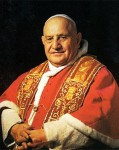
John XXIII
John XXIII (1881-1963): “The Return of Christ is near”.
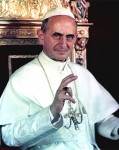
Paul VI
Paul VI (1897-1978): “The return of Christ is imminent”. (General Audience of May 13, 1970.)
And in the Roman Missal there is this unforgettable announcement:
“(...) we wait in joyful hope for the coming of Jesus Christ Our Savior”.
John Paul II and the Advent
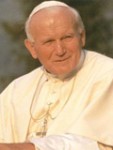
John Paul II
In the homily of Pope John Paul II (1920-2005) from December 6, 1981, we can also read:
“(...) Peter’s speech on the advent is focused above all at the last times, for “the Lord’s day”; those who experienced the first coming rightly live in the expectation of the second, as the Lord’s promise.
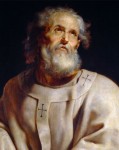
Peter
“For Peter’s lesson the “dialectics” of eternity and time appears to be characteristic, or rather the “dialectics” of “the time of God” and “the time of man”. As it is known, in Christian communities in the early centuries the expectation of Parousia was intense, that is the second coming, Christ’s second advent. Some began to doubt the veracity of this promise. A fragment of Saint Peter’s second letter (...) responds to these difficulties: ‘But do not forget this one thing, dear friends: with the Lord a day is like a thousand years and a thousand years are like a day’ (2 Peter 3:8).
“This means: you men have your conception of time, the units to measure it, the calendar and clock; you have your criteria, under which you believe that time is too long or passes too quickly. You live in time, live it your way and so it should be; but do not transfer this conception to God, because to Him your thousand years are like only one day; and one day is like your one thousand years. Therefore do not judge with your categories and do not say that God is too fast or too slow.”
Message from Pastor Jonas Rezende

Jonas Rezende
And in his book Salmos para o Espírito*3 [Psalms for the Spirit], the noble pastor, professor, philosopher and writer Jonas Rezende speaks of the transforming impact of the message brought by Christ by presenting to us a merciful God, the Divinity in us, present in the world and our lives. A link capable of forever altering the daily routines of people, with indelible lessons of humanity and compassion:

Paul
“The notion of economic and technological progress is not sufficient. Nor are the conquests of genetic engineering, or the globalized village. Post-modern man needs an ethic that respects life and its diversities; which, above all, considers the economic inequality between nations. But faith also asks for a world in which, in the words of the apostle Paul, God is everything in everyone. A theistic base. Not the explanatory God of cosmic phenomena, but a biblical God. A God of the psalms. A God that interacts personally with human beings. The Lord of History and our Father who is in the heavens and in us. A God who has the face of Jesus of Nazareth. Only the God of Jesus can balance and correct the deviations of our humanism.
“And here is where, in synthesis, are the bases of the world that we dream of and which we will build with divine assistance. Our Father is committed to this project. The true message of Christmas places God on earth; transcendence becomes flesh, in order to live with us. Trust. Hope. Work”.
Emmanuel and Christ’s Infinite Mercy

Chico Xavier
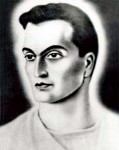
Emmanuel
Emmanuel, in his book A Caminho da Luz [The Way to Light], a psychograph by the late Chico Xavier (1910-2002), gives the excellent message concerning Our Lord Jesus:
“The determinism of love and good is the law of the entire Universe and the human soul emerges from all catastrophes in search of a better life. Only Jesus did not pass along the painful path of the races, aiming at breaking all boundaries for the universal embrace. He is the Light of the Beginning and in His merciful hands rests the destiny of the world. His magnanimous heart is the source of life for all earthly Humanity. His message of love in the Gospel is the eternal word of resurrection and justice, fraternity and mercy. All human things passed, all human things will change. He, however, is the Light of all earthly lives, inaccessible to time and destruction.
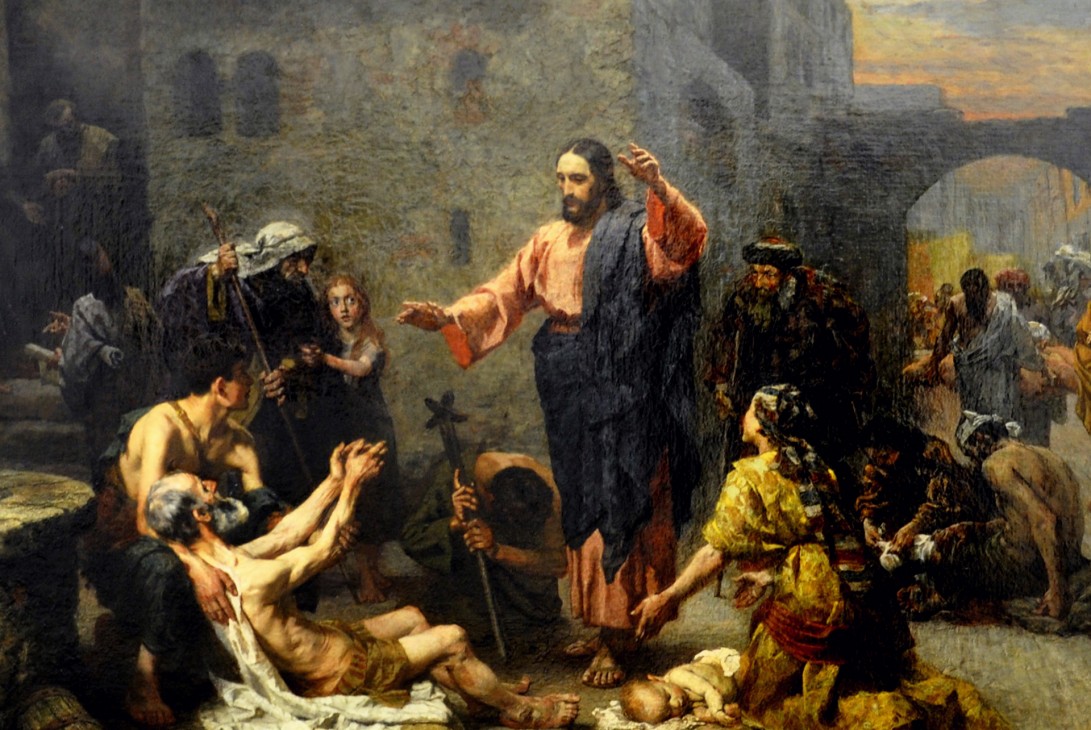
“As we speak of the mission of the 20th Century, contemplating the dictators of the present time, who become executioners before the crowds, it is up to us to lift our eyes to the infinite mercy of the Lord, imploring Him for peace and love for all hearts”.
Hail, therefore, the Permanent Christmas of Jesus, Christ of God, the Ecumenical Christ, thus He, who gravitates above human discord, generously applauds the values that exist in all segments of human life, which are Education, Politics, Philosophy, Science, Economics, Art, Sports etc., despite all their differences. May Divine Peace reside in all families and in the recesses of those who think they live alone, when, knowing or not, they are accompanied by their dedicated Guardian Angels. And together we will battle under the auspices of Peace, as extolled Alziro Zarur, “for a better Brazil and a happier Humanity!”.
How so, Malraux?

André Malraux
It was not without reason that André Malraux (1901-1976), celebrated intellectual, famous Minister of Culture for France, manifested a grave, intimate thought:
“The 21st Century will be religious or it will not exist”.
But, dear Malraux, no more religion as a tragic conflict, but rather the eternal procedure of Divine Love, which wants us to love each other as Jesus taught in the Gospel according to John 13:34 and 35; and 15:13:
“A New Commandment I give you: Love one another as I have loved you. Only by this shall all of you be recognized as my disciples, if you have the same Love for one another. There is no greater Love than to lay down his own Life for his friends”.
For this reason John the Evangelist wrote in his First Epistle 4:7 to 9 and 16 to 21:
7 Dear friends, let us love one another, for Charity comes from God; and everyone who loves has been born of God and knows God.
8 He who does not love does not know God, because God is Love, God is Charity.
9 From this manifested God’s Charity to us: God sent His Only Son into the world, so we could live for Him.
(...)
16 And we know and rely on the Love God has for us. God is Love, God is Charity; and he who lives in Charity lives in God, and God in him.
17 This is how Charity is perfect among us, so we can have confidence on the Day of Judgment; because in this world we are like Jesus.
18 There is no fear in Charity. But perfect Charity drives out fear; because fear comes with punishment. The one who fears is not perfect in Charity.
19 We love because He loved us first.
And God loved us first through Jesus Christ, the most sublime expression of Fraternity seen in this world.
20 If someone says: I love God but hate your brother or sister, he is a liar; because he who does not love his brother or sister, who he can see, cannot love God, who he cannot see.
21 Now we have this commandment from Him, that he who loves God also loves his brother or sister.
This is the permanent message of Jesus’ Christmas and a New Year in which there is more humanity from humanity for Humanity. And if “the 21st Century (...) will not exist” if it is not religious, then let it be more: may it transmute into the great embrace of the religions, into the glorious Religion of Love and Fraternity.
* * *
*1 See in Chapter 17 of the Gospel of the Ecumenical Christ according to John, in His famous “Priestly Prayer”.
*2 Jerônimo Gueiros (1870-1953) — Born in Queimadas de Santo Antônio (Pernambuco) in 1870. He was a Presbyterian pastor and professor of Portuguese at Escola Normal from Rio Grande do Norte. In his apostolate he served as director of the Southern Presbyterian Seminary (Campinas); professor and president of the Evangelical Seminary of the North (Recife). A talented writer, he presided over the Academy of Letters of Pernambuco. He died in Recife (Pernambuco) in 1953.
*3 Salmos para o Espírito — Published by Editora Mauad, Rio de Janeiro, 2002.
The comments do not represent the views of this site and are the sole responsibility of their authors. It denied the inclusion of inappropriate materials that violate the moral, good customs, and/or the rights of others. Learn more at Frequently asked questions.